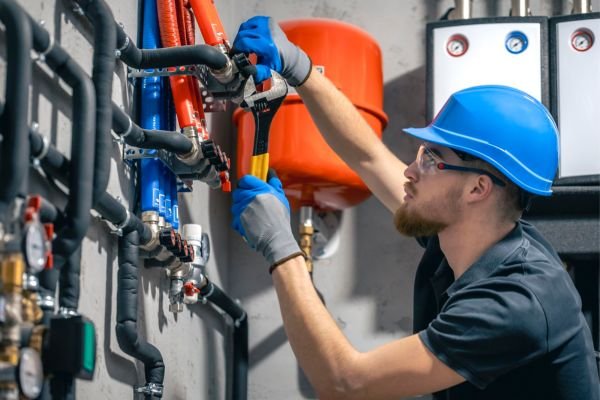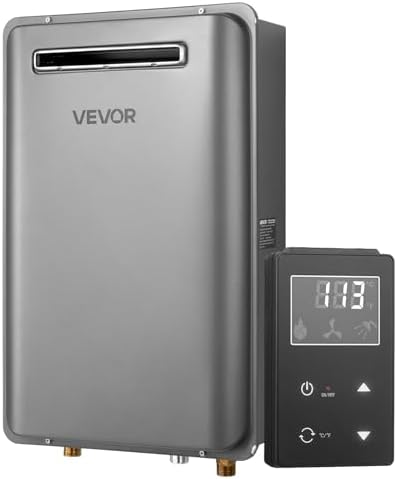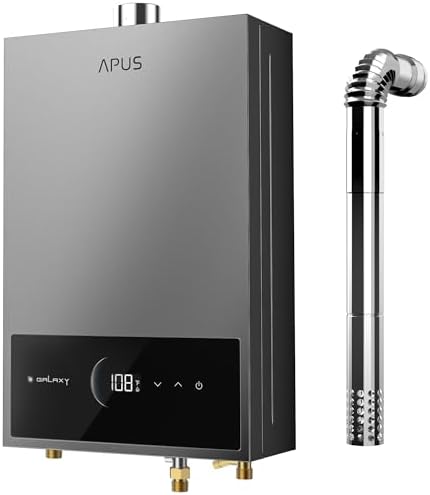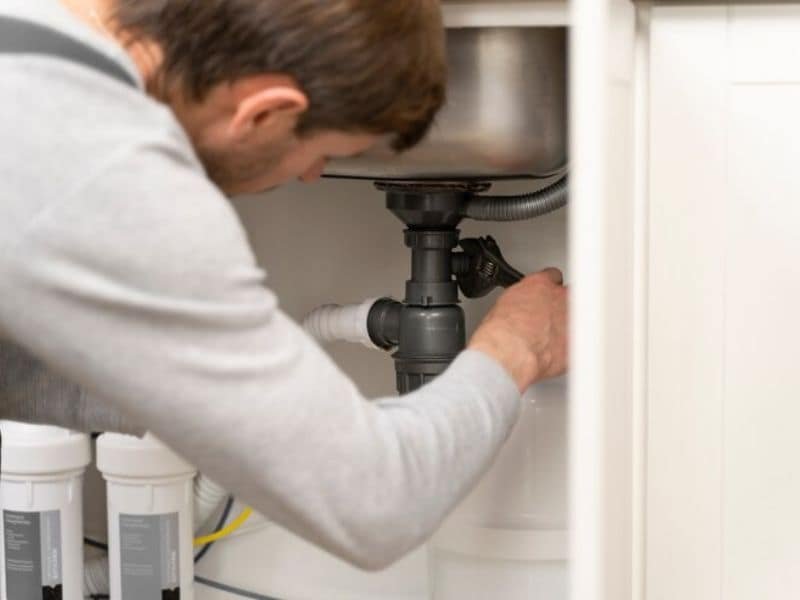A water heater is one of those household appliances we rarely think about until something goes wrong. It silently works in the background, ensuring that you have hot water for showers, washing dishes, and laundry. But when it stops functioning properly, the inconvenience is immediately noticeable. Understanding how to tell if your water heater is working is important, not only to avoid unnecessary discomfort but also to prevent costly repairs or replacements.
Most homes rely on either gas or electric water heaters, and while they operate differently, both share similar signs when something is wrong. A gas water heater uses a burner and pilot light, while an electric water heater relies on heating elements. Knowing the type you have will make it easier to troubleshoot issues.
Signs Your Water Heater Is Working Properly
When your water heater is in good condition, it will provide consistent performance. These are the positive signs you should notice:
Consistent Hot Water Supply
The most obvious indicator of a working water heater is a steady supply of hot water. When you turn on the hot water tap, you should get water that heats up within a reasonable time and stays hot long enough for showers, cleaning, and cooking. If your water temperature fluctuates drastically, it might be a sign that your heater is struggling.
Think about the last time you took a shower. Did the water stay warm until you were done, or did it cool off halfway through? Consistency is key. A properly working heater will maintain a reliable hot water flow without sudden changes in temperature.

Normal Water Pressure
Water pressure also plays a role in determining whether your heater is working well. If the water flows strongly from both hot and cold taps, your system is functioning properly. Low hot water pressure could indicate sediment buildup in the tank or a partially blocked pipe.
A quick way to test this is by comparing the flow of hot and cold water. If the cold water pressure is fine but the hot water seems weak, your heater might be experiencing issues.
No Strange Noises
A healthy water heater should operate quietly. While it might make a faint humming sound, loud pops, bangs, or rumbling noises are not normal. Such sounds usually mean there is sediment buildup at the bottom of the tank, which causes the water to boil unevenly.
If you’ve been using your water heater for years and it suddenly starts making strange noises, it’s a good idea to have it inspected. But if it runs quietly and efficiently, chances are it’s working just fine.
READ MORE: Water Heater Price Comparison
Signs Your Water Heater May Not Be Working
Sometimes, it’s easy to spot when your water heater isn’t doing its job. Here are the warning signs to look out for:
Inconsistent or No Hot Water
This is the most common and obvious sign. If your water isn’t heating at all, or if it heats inconsistently, your water heater is failing. Sometimes you may notice lukewarm water even when the thermostat is set correctly, which could mean a faulty heating element in an electric heater or a burner issue in a gas unit.
If the hot water runs out too quickly, it could also mean your tank is too small for your household needs. However, if your system worked fine before and now struggles, it’s a problem worth investigating.
Unusual Noises from the Tank
As mentioned earlier, loud noise is never a good sign. If your water heater feels that it is popping, cracking, or peating, then sediment is likely to be the cause of buildup. Over time, the minerals in the water settled in the lower part of the tank, reduce efficiency and cause overheating.
Ignoring these noises can lead to higher energy bills and eventually damage the heater completely.
Rusty or Discolored Water
If you notice reddish or brownish water coming from your hot water tap, your water heater might be corroding inside. Rusty water often means the tank is deteriorating from the inside out, which could eventually lead to leaks.
Sometimes the issue comes from old plumbing pipes, but if the discoloration only occurs when using hot water, your heater is to blame.
Leaks Around the Water Heater
Water pooling around your heater is a clear sign of trouble. Small leaks may be caused by loose connections, but larger ones often point to internal tank damage. If the tank itself is leaking, replacement is usually the only solution, as it cannot be repaired.
Water leaks can also lead to mold growth, higher water bills, and damage to your flooring, so they should never be ignored.
How to Test If Your Water Heater Is Working
Instead of guessing, you can perform a few simple tests to determine whether your heater is functioning correctly.
Checking Water Temperature
One of the easiest tests is to measure the hot water temperature. Run hot water from the tap for a few minutes, then use a cooking thermometer to check the temperature. A properly working water heater should provide water between 120°F and 140°F (49°C–60°C). Anything significantly lower may mean the unit isn’t heating correctly.
Inspecting Thermostat Settings
Sometimes there is no problem heater, but the thermostat setting. If the thermostat is very low, the water does not heat properly. For most homes, 120 ° F is a recommended temperature; It is hot enough to relax, but is safe enough to avoid burning.
If your water isn’t hot enough, try adjusting the thermostat and wait a few hours to see if it makes a difference.
Examining Pilot Light (for Gas Heaters)
For gas water heaters, the pilot light plays a crucial role. If the pilot light is out, your heater won’t function at all. You can usually see a small flame through a glass window near the bottom of the unit. If the light is out, follow your heater’s manual to relight it safely.
If the pilot light won’t stay lit, it could be a sign of a faulty thermocouple or gas supply problem.
Testing Circuit Breaker (for Electric Heaters)
If you have an electric water heater and it suddenly stops working, check your circuit breaker. A tripped breaker will cut off power to the heater, preventing it from working. Reset the breaker and wait a while to see if hot water returns.
If the breaker keeps tripping, this may point to an electrical issue inside the heater that needs professional attention.
READ MORE: Best Smart Water Heaters & Wi-Fi Enabled Water Heaters
Troubleshooting Common Water Heater Problems
When your water heater isn’t working, there are several common causes you can troubleshoot before calling a professional.
Sediment Buildup Inside the Tank
Over time, minerals in the water settle at the bottom of the tank, forming a layer of sediment. This buildup makes it harder for the heater to warm water efficiently, often causing noises and reduced hot water capacity.
Flushing your tank once a year helps prevent sediment buildup and keeps your water heater running smoothly.
Malfunctioning Heating Element
In electric heaters, heating elements are responsible for warming the water. If one fails, you’ll notice lukewarm or insufficient hot water. Replacing a heating element is usually straightforward and much cheaper than replacing the whole heater.
Broken Dip Tube
The dip tube directs cold water to the bottom of the tank so it can be heated. If it breaks, cold water mixes with hot water at the top, resulting in lukewarm water from your taps. Replacing a dip tube is inexpensive and can restore your heater’s efficiency.
Checking Gas vs Electric Water Heaters
When it comes to figuring out whether your water heater is working, the steps you take will depend on whether you have a gas or electric unit. Both types heat water effectively, but they use completely different mechanisms. Knowing which one you have will help you test and troubleshoot more accurately.
How to Check a Gas Water Heater
A gas water heater relies on a burner and pilot light to heat the water inside the tank. To check if it’s working properly, start by looking at the pilot light. If it’s out, your heater won’t be able to generate heat. A strong, steady blue flame indicates that it’s burning correctly. If the flame is yellow or flickering, there may be an issue with the gas supply or burner.
You can also listen for unusual noises while the burner is running. A soft “whooshing” sound is normal, but loud bangs or rumbling noises often point to sediment buildup. Another thing to check is the smell. If you notice a strong gas odor around your heater, shut it off immediately and call a professional, as this could signal a dangerous leak.
Additionally, gas heaters have a vent system to release exhaust gases. Make sure the vent is unobstructed and working properly, as blocked vents can cause dangerous carbon monoxide buildup inside your home.
How to Check an Electric Water Heater
Electric water heaters don’t have a flame, so instead, you’ll need to check the power supply and heating elements. Start with the circuit breaker if it’s tripped, reset it and wait a few hours to see if the water heats up. If the breaker trips again, you may have an electrical problem inside the unit.
Next, inspect the thermostat. If the water is lukewarm, try raising the thermostat setting slightly. If you still don’t get hot water, the heating element might be burned out. Electric heaters typically have two heating elements, one near the top and one at the bottom of the tank. If one fails, your water heater will still work but won’t produce enough hot water.
A multimeter can be used to test the heating elements for continuity, but if you’re not comfortable working with electricity, it’s best to call a licensed technician to handle the inspection and replacement.
READ MORE: How to Test a Water Heater Thermostat
Preventive Maintenance to Keep Heater Working
Like any appliance, your water heater will last longer and work more efficiently if you maintain it properly. Preventive care not only reduces the risk of breakdowns but also saves you money on energy bills and costly repairs.
Flushing the Tank Regularly
Sediment buildup is one of the biggest reasons water heaters fail prematurely. Minerals from hard water settle at the bottom of the tank, forming a barrier between the water and heating source. This makes your heater work harder, use more energy, and produce less hot water.
Flushing your water heater once or twice a year is an easy fix. To do this, turn off the power or gas, connect a garden hose to the drain valve, and let the tank empty into a safe drain area. This clears out sediment and keeps the heater running efficiently.
Inspecting the Anode Rod
The anode rod is a metal rod inside your water heater that attracts corrosion, protecting the tank from rusting. Over time, the rod deteriorates, and once it’s completely worn out, your tank begins to corrode instead. Checking the rod every 2–3 years and replacing it when necessary can extend your heater’s lifespan by several years.
If your water has a rotten egg smell, it could be a sign that the anode rod is deteriorating and reacting with the minerals in the water. Replacing it often solves the problem.
Checking the Temperature and Pressure Relief Valve
Every water heater has a temperature and pressure relief (T&P) valve for safety. If the water gets too hot or pressure builds up too much, the valve releases excess water to prevent the tank from exploding.
To test it, lift the lever slightly to see if water flows out of the discharge pipe. If nothing comes out, or if the valve leaks constantly, it’s time to replace it. This simple check can prevent dangerous accidents and keep your heater safe to use.
When to Call a Professional
While many water heater problems can be fixed with basic maintenance, some issues are too complex or risky to handle on your own.
Issues That Require Expert Repair
If you notice persistent leaks, strange smells, electrical problems, or if your water heater stops working entirely despite troubleshooting, it’s time to call in a professional plumber or technician. Gas leaks, wiring problems, and internal tank damage are not DIY-friendly repairs and can be dangerous if mishandled.
Additionally, if your water heater is making loud banging noises even after flushing, or if it keeps running out of hot water faster than normal, these could be signs of a more serious mechanical failure.
Cost vs Replacement Consideration
Sometimes, repairing an old water heater isn’t worth the cost. Most units last about 8–12 years, depending on maintenance and water quality. If your heater is near or past this age, and you’re facing an expensive repair, replacing it might be the smarter long-term choice.
Newer water heaters are also more energy-efficient, which means lower utility bills. While a replacement can be an investment, it often pays off in both performance and savings over time.
READ MORE: How to Descale a Tankless Water Heater
Tips for Extending the Life of Your Water Heater
Water heaters are not cheap, so getting the most out of yours makes sense. With a little care, you can add years to its lifespan.
Regular Maintenance Habits
Simple habits such as flushing the tank, checking anode rod and testing T&P valve once a year can create a big difference. Keep an eye on small leaks, abnormal noise, or change of water quality, and address them early before turning into expensive problems.
Setting the Right Temperature
Keeping your water heater at 120°F is ideal. It’s hot enough to prevent bacteria growth, safe enough to avoid burns, and low enough to reduce strain on the heater. Higher temperatures not only waste energy but also cause faster wear and tear.
Using Water Softeners if Needed
If you live in an area with hard water, mineral buildup is a constant problem for your heater. Installing a water softener can reduce sediment accumulation and extend the life of your tank. While it’s an additional cost, it prevents frequent maintenance and keeps your water system running smoothly.
Conclusion
Your water heater is an essential tool, and knowing how to explain that it is working properly can save you time, money and frustration. There are many simple ways to test your heater at home, from checking water temperature and pressure to observing pilot lights or circuit breakers. Identification of early warning signals such as rusty water, leaks, or strange noise allows you to work before the problem deteriorates.
With regular maintenance, such as flushing the tank, inspecting the anode rod, and testing safety valves, you can extend the lifespan of your unit and keep it running efficiently. And when problems get too complex, calling in a professional ensures safe and proper repairs.
Ultimately, a little awareness and preventive care go a long way toward ensuring that your water heater keeps delivering hot showers and warm water whenever you need it.
FAQs
1. How often should I check my water heater?
You should inspect your water heater at least once a year, checking for leaks, sediment buildup, and thermostat accuracy.
2. Can a water heater stop working suddenly?
Yes, sudden failures can happen, especially if the heating element burns out or the pilot light goes out. However, most problems show warning signs first.
3. What temperature should my water heater be set at?
The ideal setting is around 120°F. It balances comfort, safety, and energy efficiency.
4. How long does the average water heater last?
Most water heaters last 8–12 years, though regular maintenance can extend this to 15 years or more.
5. What should I do if my water heater leaks?
Turn off the power or gas supply, shut off the water line, and call a plumber immediately. A leaking tank usually needs replacement.






